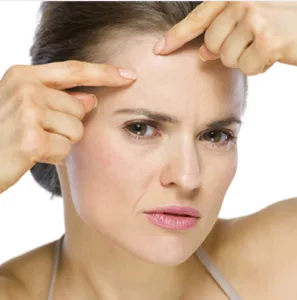Knowledge sharing
How Moisturizing Creams Rebuild and Protect Your Skin Barrier – Scientifically Proven
Moisturizing creams are an essential part of many people’s skincare routines. Whether you’re dealing with dry skin, oily skin, or anything in between, the benefits of a good moisturizer are undeniable. But how do these creams work, and why are they so effective at maintaining healthy skin? In this article, we will dive deep into the science behind moisturizing creams, explaining how they replenish water in the skin, the roles of different moisturizing agents, and why these creams should be used for all skin types. If you’re looking for the best moisturizing cream for dry skin in Michigan winters, understanding this science will help you make the right choice.
How Moisturizing Creams Replenish Water in the Skin
The primary function of any moisturizing cream is to hydrate the skin. Our skin is naturally made up of a variety of layers, with the outermost layer, known as the stratum corneum, acting as a barrier to the environment. This layer helps to keep moisture in and harmful elements out. However, the skin is constantly exposed to factors like weather, pollution, and stress that can lead to moisture loss. When this happens, the skin becomes dry, flaky, and irritated.
Moisturizing creams are formulated to help replenish water in the skin, bringing back the hydration that has been lost. The process behind this is quite fascinating. Moisturizing creams contain water molecules, which are absorbed into the skin when applied. This helps to restore the moisture balance, making the skin appear smoother, more elastic, and radiant. If you live in areas like Grand Rapids, choosing a hydrating face cream for Grand Rapids cold weather can make a huge difference during winter months.
Additionally, moisturizing creams can form a protective layer on the skin’s surface, preventing further water loss. This is where other ingredients like emollients and humectants come into play, which are critical for improving skin hydration. Let’s explore these in more detail.

The Role of Emollients and Humectants in Skin Moisturization
To fully understand the science of moisturizing creams, it’s important to know about the different ingredients they contain, specifically emollients and humectants. These are two categories of moisturizing agents that play distinct roles in maintaining skin hydration.
Emollients:
Emollients are ingredients that help soften and smooth the skin by forming a thin layer over the skin’s surface. They work by filling in the spaces between skin cells and enhancing the skin’s smoothness. Emollients are vital for people with dry or rough skin because they help restore the skin’s natural smoothness and prevent it from becoming too rough or cracked.
Common emollients include oils (like mineral oil or plant-based oils), butters (such as shea butter), and silicones (like dimethicone). These ingredients are commonly found in moisturizing creams because they help lock moisture into the skin while providing a barrier against irritants.
Emollients are particularly useful for improving the appearance of dry, scaly, or flaky skin, as they smooth out the skin’s surface and reduce the visibility of dryness. They also contribute to the overall health of the skin by reducing trans-epidermal water loss (TEWL), the process by which water escapes from the skin into the environment. For individuals facing extreme conditions such as Detroit’s harsh winter, selecting the right moisturizer for sensitive skin in Detroit’s harsh winter is essential to keeping skin calm and hydrated.

Humectants:
Humectants, on the other hand, work by drawing moisture from the environment into the skin. These ingredients have the ability to attract water molecules and bind them to the skin, enhancing hydration. Humectants are crucial because they help maintain long-lasting moisture levels in the skin, even in environments that may be dry.
Common humectants found in moisturizing creams include glycerin, hyaluronic acid, and aloe vera. Glycerin is one of the most popular humectants due to its ability to attract moisture and provide a cooling sensation to the skin. Hyaluronic acid, a naturally occurring substance in the body, can hold up to 1,000 times its weight in water, making it incredibly effective at hydrating and plumping the skin.
While emollients help to seal in moisture, humectants help to bring moisture in, which is why they are often used together in moisturizing creams to provide the most effective results. If you’re building a winter skincare routine with moisturizer in Ann Arbor Michigan, look for products that contain both humectants and emollients for optimal hydration and protection.
Different Types of Moisturizing Agents and Their Effects
Moisturizing creams can contain a variety of agents, each serving a unique purpose. Some are designed to hydrate the skin, while others help to protect and lock in moisture. Below are some of the most common types of moisturizing agents and their effects on the skin.
Occlusives:
Occlusives are ingredients that create a physical barrier over the skin, preventing moisture from escaping. These agents are particularly useful for very dry skin or for people living in harsh climates, as they help retain hydration for longer periods.
Popular occlusive agents in moisturizing creams include petrolatum (petroleum jelly), beeswax, and lanolin. These ingredients are often used in thicker creams and ointments, and they are highly effective at creating a waterproof barrier that locks in moisture.
Occlusives are excellent for people with extremely dry or compromised skin, as they create an effective barrier that prevents the skin from losing hydration. However, it’s important to note that occlusives may feel greasy or heavy on the skin, so they may not be ideal for those with oily or acne-prone skin. For residents of the Upper Peninsula facing long, cold seasons, using the best face cream for Upper Peninsula Michigan residents with occlusives can dramatically improve skin comfort and moisture retention.
Hydrating Agents:
Hydrating agents are substances that directly add water to the skin. These include water-based ingredients like aloe vera juice and cucumber extract. These agents help to refresh the skin and provide immediate hydration, making them ideal for products designed for daily use.
Hydrating agents are often included in lightweight moisturizers designed for normal to oily skin. These creams provide moisture without feeling heavy or greasy on the skin’s surface.
Skin Conditioners:
Skin conditioners are another category of moisturizing agents that help improve the appearance and health of the skin. These ingredients work by maintaining the skin’s natural structure, improving its ability to retain moisture, and enhancing its smoothness and texture.
Examples of skin conditioners include proteins like silk protein and hydrolyzed collagen. These ingredients are often found in anti-aging creams, as they help to keep the skin firm, smooth, and supple.
Why Moisturizers Should Be Used for All Skin Types
You may think that moisturizers are only necessary for dry skin, but in fact, everyone can benefit from using moisturizing creams—regardless of their skin type. While it’s true that people with dry skin often need heavier, more emollient-rich creams, moisturizing is equally important for those with oily or combination skin.
Here’s why:
Balancing Oil Production: People with oily skin might assume that applying moisturizer will make their skin greasier. However, moisturizing creams can help regulate oil production. When the skin is hydrated, it doesn’t need to produce as much sebum, which can lead to fewer breakouts and a more balanced complexion.
Preventing Premature Aging: Hydrated skin is less prone to developing fine lines and wrinkles. Moisturizing creams help maintain skin elasticity and plumpness, keeping the skin looking youthful. Regardless of your skin type, using a moisturizer can help protect against premature aging caused by dehydration.
Protecting the Skin Barrier: The skin’s natural barrier protects it from environmental damage, such as pollution and UV rays. A moisturizer helps to keep this barrier intact, ensuring that the skin remains healthy and protected. This is particularly important for people with sensitive skin or conditions like eczema or rosacea, which can be exacerbated by dryness.
Hydration for All Skin Types: Even those with oily skin can experience dehydration. This can happen when the skin loses water due to external factors such as weather, air conditioning, or heated indoor environments. In such cases, moisturizing helps to restore the skin’s natural moisture balance and prevent it from becoming parched.

